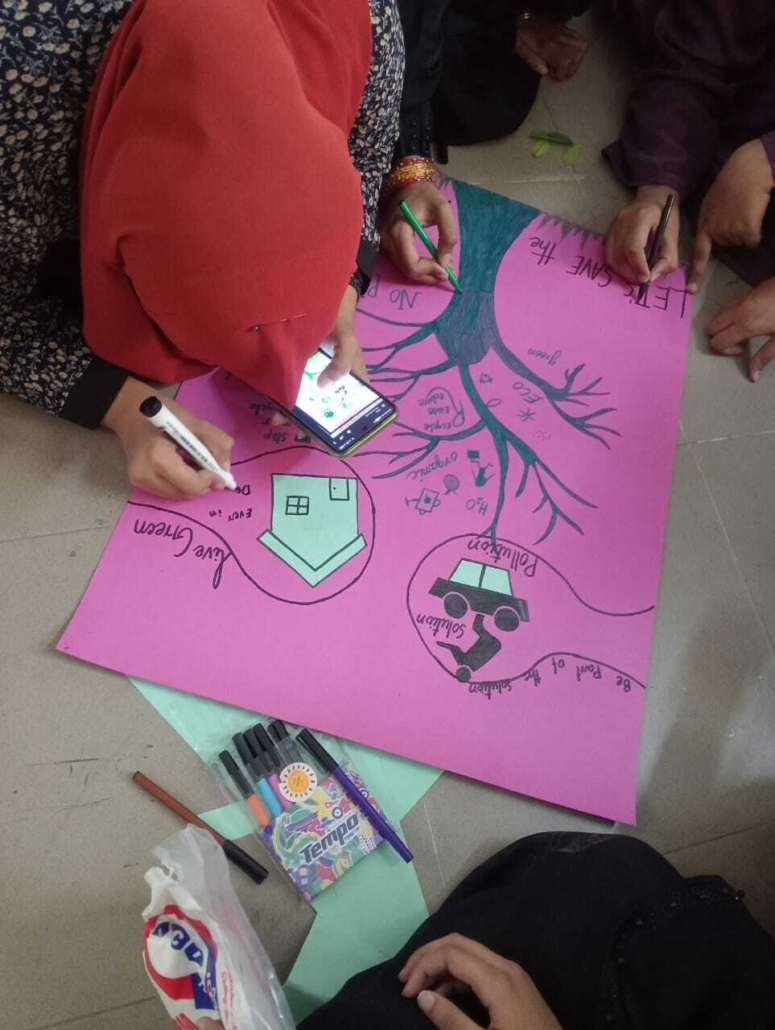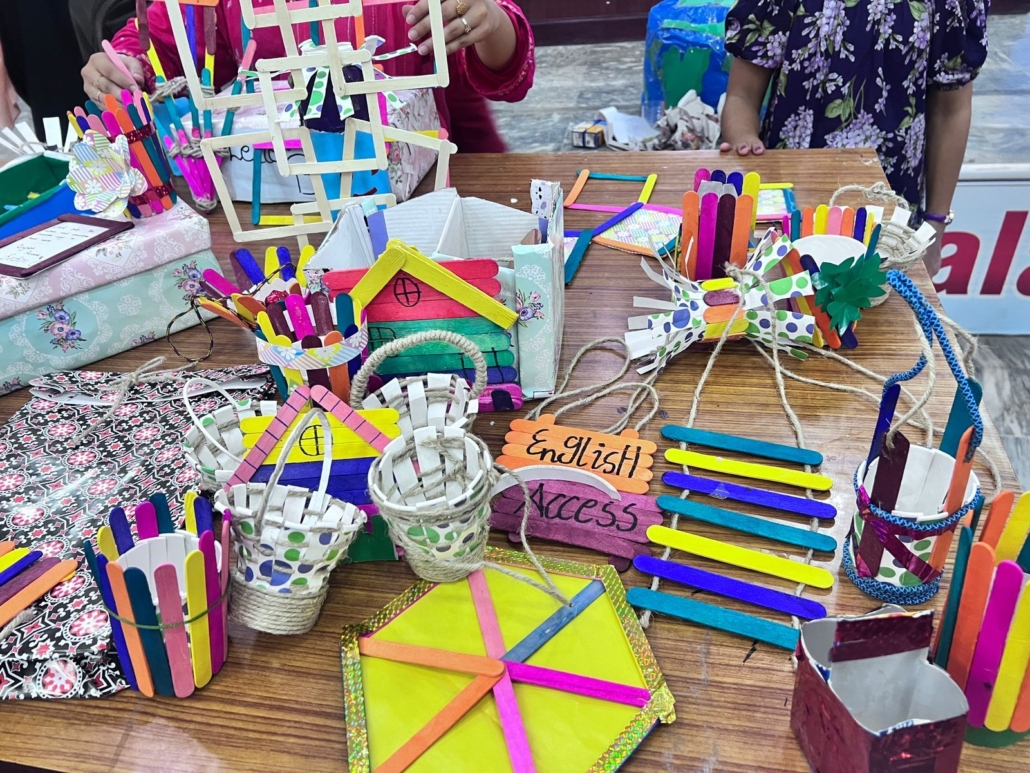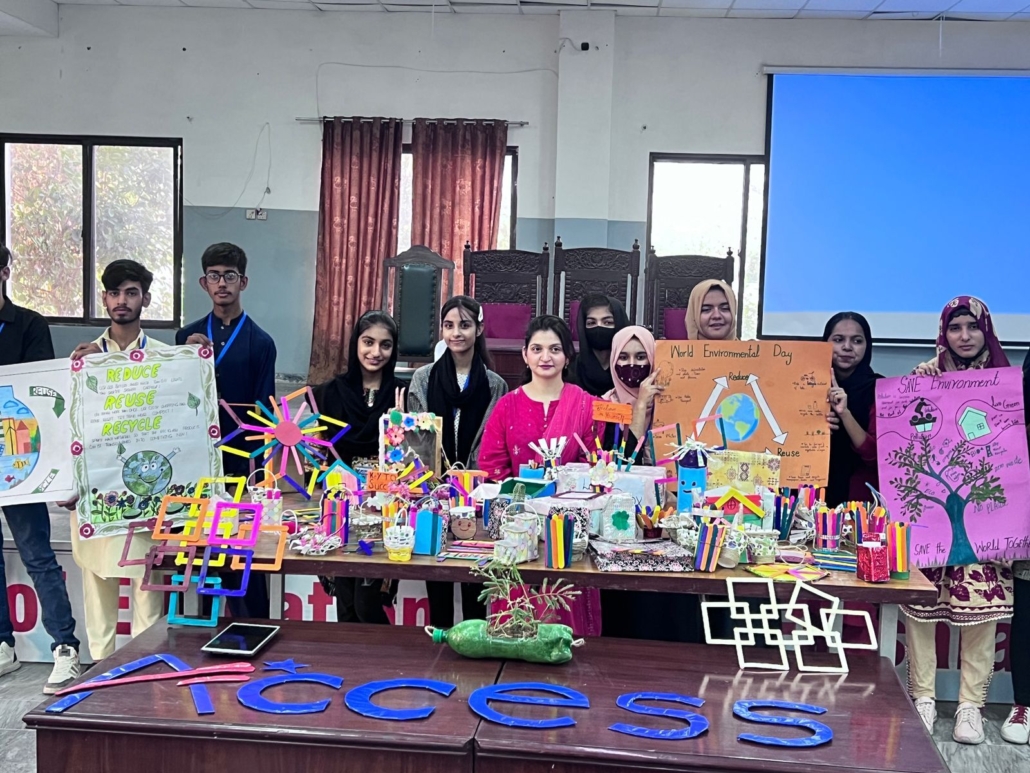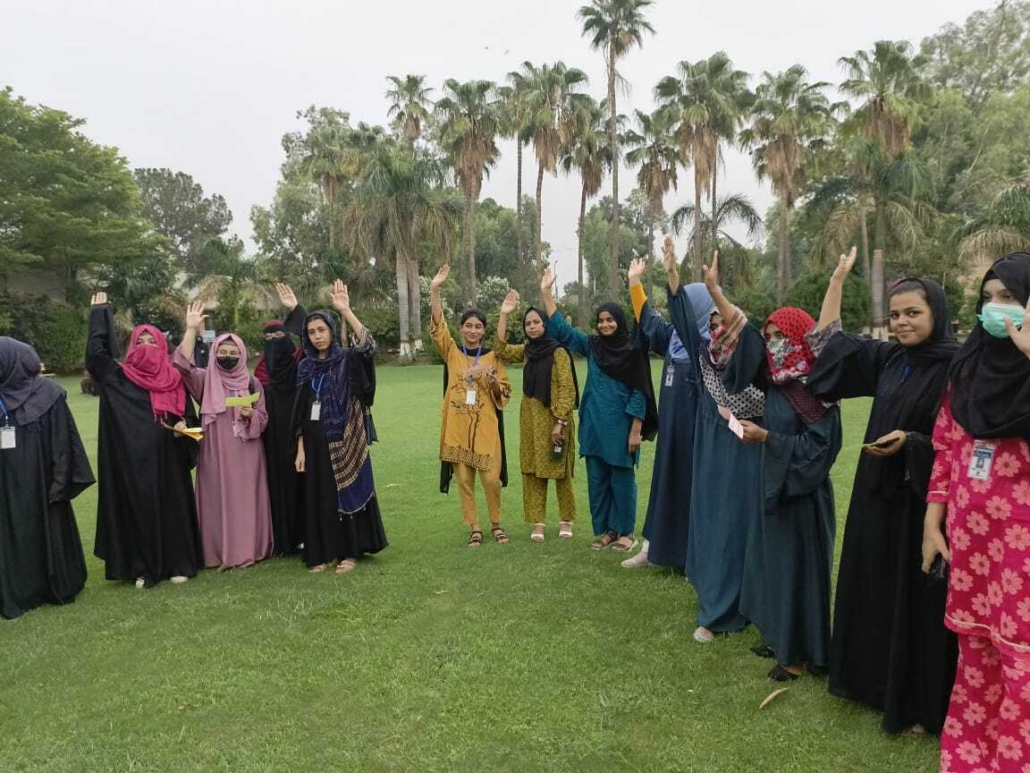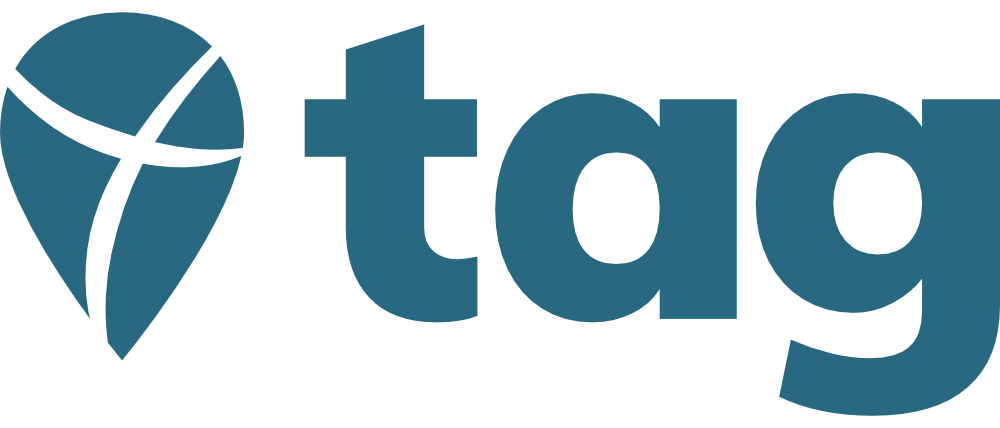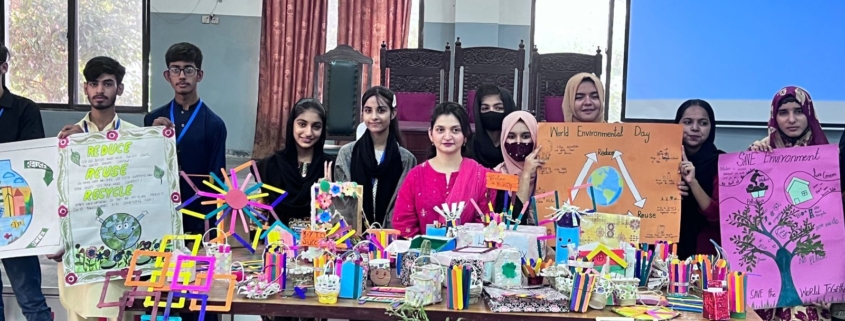Local Actions, Global Impact: Students and Teachers Champion Climate Solutions
Written by: Anam Ikhtiar, Educator
In the vibrant classrooms of Faisalabad, Pakistan, learning is no longer confined to textbooks. Students are discovering that their ideas, creativity, and actions can ripple far beyond school walls, into communities and even across the globe.
Learning Through Action
In Access classrooms, students are taking the lead, designing projects, setting goals, and reflecting on their learning. From creating interactive climate campaigns to testing sustainable solutions in their neighborhoods, these young changemakers are actively shaping their world. For instance, a group of students recently joined the Earth Project app, tracking their environmental habits, setting personal goals to reduce waste, and promoting clean-environment initiatives digitally. One student, Ayesha, used the app to monitor her habits and then organized a one-week Plastic-Free Week and Water-Wastage Week at her school, inspiring her peers to make measurable changes. Every activity sparks curiosity, builds ownership, and encourages students to ask: What matters to me? How can I make a real impact?
Creativity with Purpose
Whether sketching ideas for community gardens, designing posters about clean energy, or collaborating online with peers abroad, students are discovering creativity as a tool for change. These experiences enhance critical thinking and allow each student to contribute a unique perspective, making learning personal, meaningful, and action-driven. Teachers joining this movement actively support students, guiding them to reflect, set goals, and amplify their impact locally and globally.
Building Bridges Beyond Borders
Virtual exchanges connect Pakistani students with peers worldwide, showing that environmental challenges and solutions are universal. Through these collaborations, students develop empathy, teamwork, and a sense of global responsibility. An online class-to-class exchange paired Faisalabad students with international students to co-create climate action posters, exchanging ideas and feedback in real time. Complementing this, a 3R workshop encouraged students to design and build models entirely from reusable materials, allowing them to apply creativity while learning about reducing, reusing, and recycling. Student remarks from the workshop include: “I never imagined we could make something so useful from waste,” and “It made me realize how small changes in our habits can help the environment.”
Practical, Playful, and Inclusive
Classrooms combine hands-on experiments, digital storytelling, and structured guidance with playful exploration. This inclusive approach ensures all students participate, becoming confident communicators and problem-solvers equipped to tackle real-world issues.
A Growing Movement
Education in Pakistan is evolving. Students are not just learners; they are changemakers. By engaging teachers and students in hands-on, reflective, and digitally connected projects, the Access program is nurturing a generation ready to take meaningful action for a sustainable future. Every idea shared, every habit tracked, and every initiative promoted contributes to a larger movement for environmental awareness and youth empowerment. Together, students and teachers are proving that local actions can have global resonance, inspiring hope, creativity, and collective responsibility for a cleaner, greener world.
